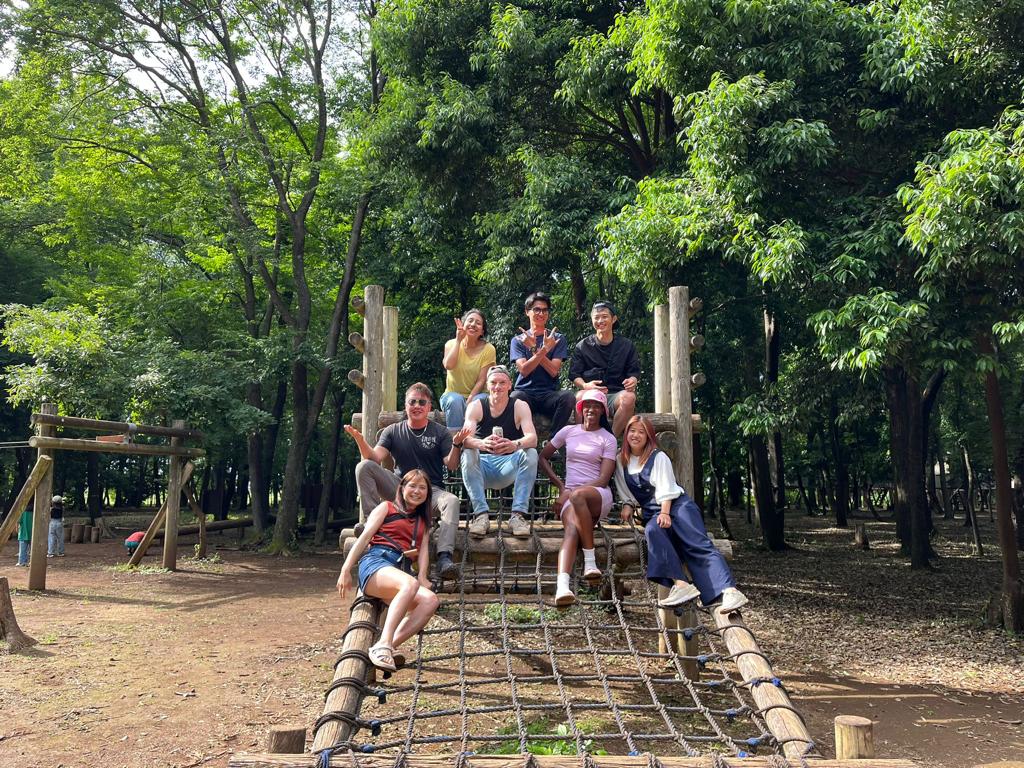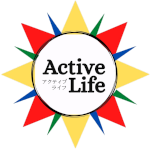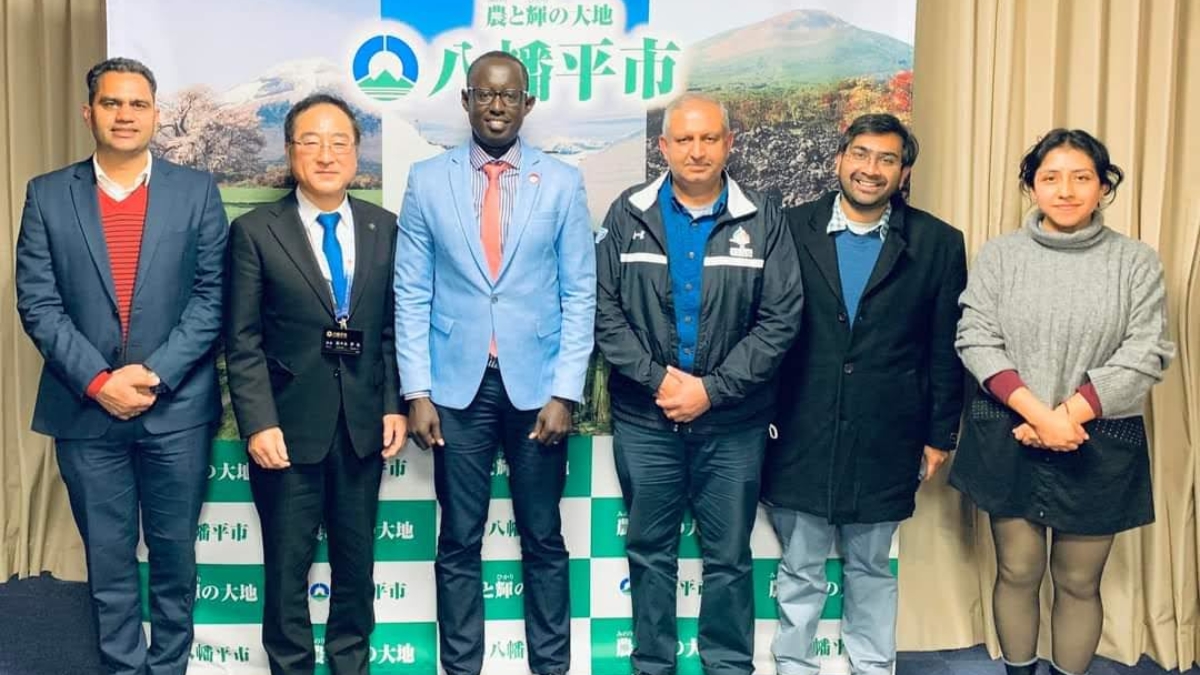By Karen Pullupaxi
I graduated in architecture from San Francisco University in Quito at the end of 2020, in the middle of the pandemic. Originally, my plan considered traveling to Japan in September 2021, but due to the restrictions and airport closures we experienced during those years, I took my first semester of my master’s degree in Sports and Olympic Studies online at the University of Tsukuba. I managed to arrive in Japan in mid-April of the following year, when the second semester had already started.
Japan has been in my life since childhood when I watched anime, and even more so when I started training Kendo at 14 years old. Thanks to this, I had the opportunity to travel to Japan for the first time in 2015 to participate in the 16th World Kendo Championships. This helped me confirm that Japan was the country in which I wanted to live.
I think that living and studying abroad requires a great amount of energy and mental strength, especially with a language as complex and a culture as different as Japanese. In my case, some important people helped me during the admission process at the University of Tsukuba, and everything went smoothly. Information about my master’s degree, scholarship, and admission process was given to me by my kendo senpai, Tanya Saga, whom I had met in Ecuador. She had been living in Japan for several years and had completed a master’s degree at the same university, so she contacted me with a professor who guided me in the application and, in turn, referred me to the secretariat of the program to which I applied. The programme received a monthly maintenance scholarship. The one they awarded me was the last and part of the legacy of the Tokyo 2020 Olympic Games. Without a doubt, that scholarship helped with my living expenses in Japan; However, I also decided to do some part-time jobs because the student visa in Japan allows you to work up to 28 hours a week. In my case, I worked as a private language teacher and in English academies for children. I know that there are different part-time job options, but most of them require a high level of the Japanese language.
It is difficult to live in a new country. However, as mentioned before, I was lucky to have people who helped me make the process smooth. From what I can tell, Japan is a more bureaucratic country than Ecuador. Therefore, the university assigns tutors to international students to guide us in all procedures and documents that must be filled out. Regarding the type of education and methodology, personally, I prefer that of Ecuador, since I felt more challenged with my undergraduate university education than with the master’s degree that I took here in Japan. It may also be that the mix of virtual and in-person classes affected our studies; not only that, I have the perception that something else was missing.
An advantage at my Japanese university, as well as that in Ecuador, was its extracurricular activities. In Japan, they offer a wide variety of workshops and classes organized in clubs or circles that receive new students each semester. I participated in kendo, swimming, and andean folklore clubs. A particular characteristic of these sports clubs is that they are divided into three categories: the official one, which represents the university, and that of the medical students and friends clubs. I trained in all three Kendo circles; therefore, I appreciated the difference in the type of training, and the one I liked the most was the medicine club, because it reminded me of the training I had in Ecuador.
In Japan, respect for hierarchy marks the dynamics of social relationships. Although in Ecuador there is implicit respect for authorities and older people, in Japan, these rules are observed more rigidly, and the hierarchy by seniority is added, which for me is the most important. Within universities, this hierarchy is experienced at all times, especially in research laboratories and clubs. I experienced this treatment when I started training Kendo in Ecuador, so I was able to adapt better to certain spaces when I came to Japan, where the “senpai-kohai” relationship (the one who arrived first and the one who arrived later) is crucial, and it defines how a person manages to function in a certain field, especially in martial arts and sports.

Even though Japan is a distant country, I found a group of Latin friends who made me feel at home. I understood that it is normal to feel lonely from time to time, even when I was doing as many activities as possible, to keep myself busy. At one point, I thought it would be tough for me to create ties with my fellow circle members, but with this experience, I can say that it is possible to find people to connect anywhere in the world, even without speaking the same language. Despite this, language was and remains the most difficult barrier to my life in Japan.
Since I was a child, living, studying, and training in Japan was my dream, and as I grew up, it became my goal until I achieved it. I have learned so much from this experience that it is sometimes difficult for me to describe it. Although living here is still a challenge that I continue to overcome every day, having studied in Japan has opened several doors to my future career and has also taught me to value my roots.



Leave a Comment